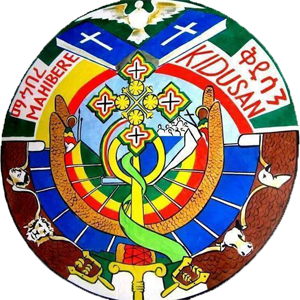About Mahibere Kidusan
Name
The association was named Mahibre Kidusan (an association in the name of Saints) Saints would be commemorated in that they abounded the secular world and sacrificed their lives to the orthodox belief for whom the prophets prophesized and apostles evangelized.
History
In 1977 E.C (Ethiopian Calendar) few students of higher education initiated the youth in the compass to become members of Sunday school and know the teachings of the churches. Later, this effort had been strengthened by students trained in the Zeaway Hamere Berehan St.Gebreil Clergy Training Monastery by the Then Arch Bishop of Shewa Abune Gorgorious II.
The movements continued in Bilatie military camp that brought all students of higher institutions in the country in 1983 E.C after a year, with the blessing of the church fathers the associations was set up by the name “Mahibre Kidusan” under the Sunday School Department of the Ethiopian Orthodox Tewahedo Church. Since then the associations has been proving spiritual service.
Vision
“Envisioning the Church fulfill its universal leadership role.”
Mission
Fructify and procure an organized, whole, eloquent, moderate, versatile and leader generation who strives in achieving the church’s mission and diligently work for her existence.
Institutional Asset
OBJECTIVES
Stand
The association shall not interfere in administrative affairs of the church and it is free from and political affiliation.
Membership
- Disciples who trained in various training institution of the church and providing ministerial activity.
- Higher institution students attending Sunday in their respective parishes.
- Member of Sunday school or/and parish that provide spiritual service after graduating from higher institution.
- The laity who support the objective of the association with their knowledge, money and labor.
Structure
Mahiber Kidusan is set under the Sunday School department of the Ethiopian Orthodox Church. It provides spiritual services by its sub centers in the dioceses all over the country and in the Diaspora.


Easter
Dear Children of God, Greetings to you and gratitude to Almighty God! Happy Holiday to you as we have reached the joyful day of Easter, the day Our Lord and Savior Jesus Christ has risen from death.
The Power of Resurrection
The rising of Lord and Savior Jesus Christ from the dead is the mark of the salvation of human race. His resurrection means that we believe in His love, sacrifice and redemption to humanity. He rose from the dead by Himself without anybody raising Him. But Christ Himself rose by Himself because He had the power of resurrection in Him and it was not possible for death to capture Him because He had the life in Him. (John 1:4)
The Suffering and Death of Lord Jesus Christ
As we contemplate Lord and Savior Jesus Christ’s Passion, we have a tendency to overemphasize the physical suffering and sacrifice Jesus Christ experience because it is material, tangible and easy to understand. He was spat upon, cursed at, whipped, beaten, humiliated, scourged and finally crucified. But overemphasizing the physical suffering leads to undervaluing the enormous spiritual suffering He experienced during those last days.
Holy Passion Week
Passion Week is celebrated in Holy Church in the observation of the sufferings of the Savior, the Lord Jesus Christ; it is the week is the week of praises. The path of Lord Jesus’ suffering started since His birth. The prophet Isaiah said, “a man of sorrows and acquainted with grief.” (Isaiah 53:3) Lord Jesus was born in a manger because Saint Joseph the righteous and the Holy Virgin Mary were unable to find room on their way to the registration of Census. (Luke 2: 7)
Passion Week
Dear Children of God how are you? Praise to the Almighty for His mercy and will to keep us alive and peace!
Children, we hope you are well and strong throughout these fasting weeks. How is school and life at home? We assume you are behaving as well as Christian children obeying and respecting you father, mother, siblings and you other elders.
Dear Children! Today we are going to teach you about the last week of ‘The Great Fast’ which is called ‘Passion Week.’